By Ali A. Soliman, Ph.D
Ali Soliman, current Chairman of the United Nations' Association of International Civil Servants, received his Ph.D. in economics from the University of Iowa in 1975. These are his reflections of his time as a graduate student at the University of Iowa.
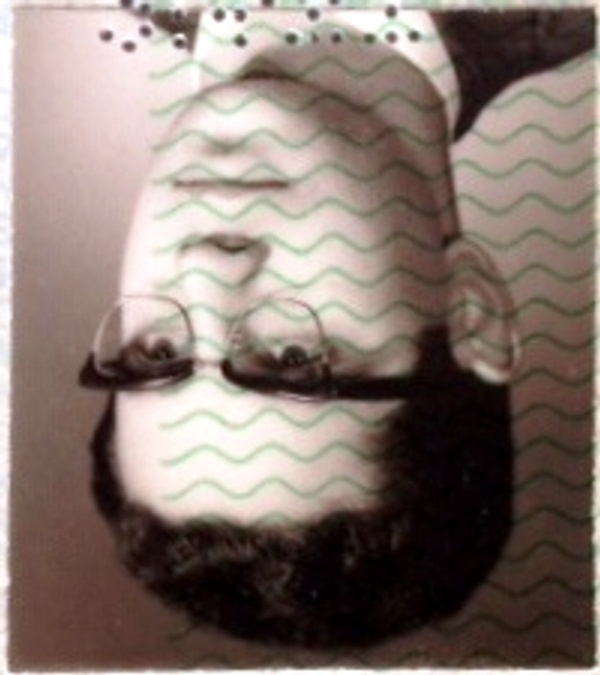
My visa photo from 1969
45 years ago, I arrived at the Iowa City Bus Depot with one suitcase that contained all I owned. A Ph.D. takes four or five years – the duration of time I intended to stay. But as air travel was so expensive, there was no prospect that I would go home anytime soon!
The Department of Economics had offered me a teaching assistantship. Previously, I had taught at Cairo University and one of my former professors, Dr. A. Qayum, had recommended me highly. In the days after Egypt’s 1967 defeat in the Six-Day War, it was difficult to receive government financing so I was grateful to get this opportunity despite the meager pay.
It was the middle of the winter, days before the second semester. I was taken aback by the cold weather –which was much colder than my European experience – and marveled at the frozen Iowa River. Soon, however, I was ushered into my room at the Rienow II dormitory (Slater Hall now.) I was sharing a room with a young undergrad from Moline, Illinois. We later became friends. I counseled him about his studies and he taught me how to drive when I bought my first car.
My studies at the Department of Economics soon started, as well as my teaching. However, I was lonely and looked forward to the arrival of my future wife, Zizi, a school mate from Cairo. Soon enough, the University prematurely closed in May due to the events at Kent State University where 4 students were shot during an anti-Vietnam War demonstration.
I spent the long summer in Boston, where I had a more leisurely introduction to American life. I had a night job as a receptionist in a large hotel adjacent to North Station. During the day, I took long walks by the Charles River, read all what was available on the Middle-East at the Copley Square library and sometimes attended open air Pops’ music performances. My wife soon joined me there and we enjoyed a beautiful month in a subleased apartment.
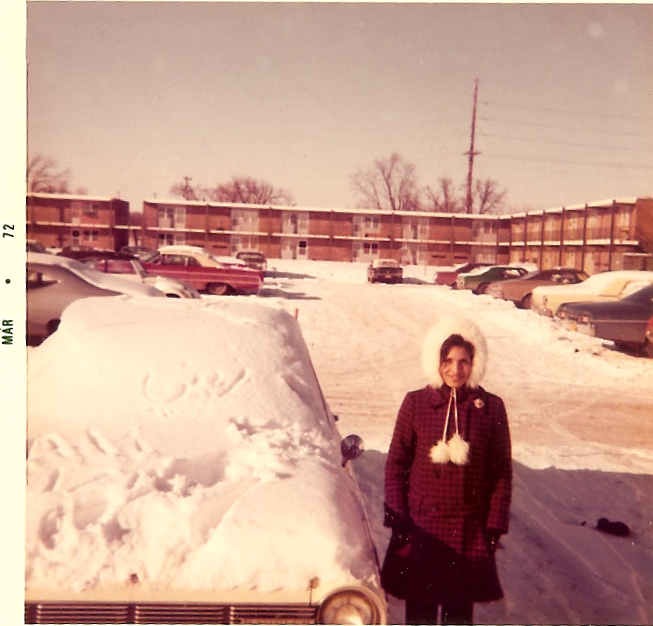
My wife Zizi stands next to our very first car parked at a snowy Hawkeye Court.
In September, Zizi and I established our first home in Iowa City as we qualified for married housing at Hawkeye Court (an apartment complex that was torn down for a new development nearly a year ago.) We bought secondhand furniture and inexpensive crockery.
When my wife mastered her cooking, we began to invite friends over for dinner. As she learned how to cook from books and later from Julia Child’s TV show, we enjoyed a multinational kitchen. We began to enjoy Iowa pastimes as well – an occasional game of basketball, barbecues and Frisbee matches in the park and fishing at Lake Macbride. I also sent opinion pieces to the Daily Iowan, and sported a McGovern button during election rallies in 1972.
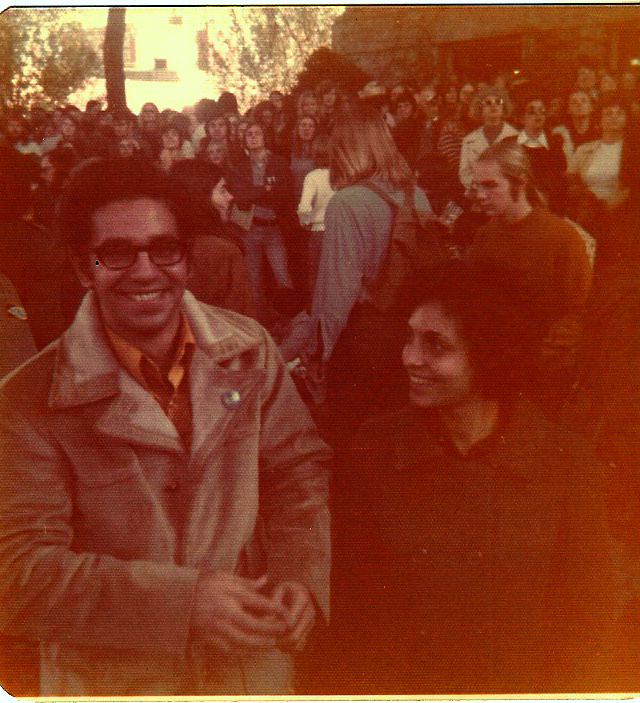
Zizi and I at a George McGovern rally on the UI campus in 1972.
For the second year of my studies, Professor Calvin Siebert, Chair of Economics, invited my colleagues and I to apply for a generous federal fellowship to study health economics. Suddenly, my monthly income doubled to $550 in addition to book and conference allowances. I could then afford a used car- I paid the princely sum of $325.00 for a five year old model- and we arranged for my wife to start her own graduate studies in the Statistics Department.
In my third year, two things happened. I passed my comprehensive exams. I also lost my fellowship as someone in Washington thought that, as a foreign national, I should not qualify. I sought employment off-campus and happily, my health economics adviser, Jim Jeffers, alerted me to a job at the Iowa Hospital Association (IHA) in Des Moines. I proceeded to convince the affable president, Donald Dunne, that they actually needed an economist to help explain the newly promulgated “Price and Wage controls” – a complex Nixon program to fight inflation. Coming from a Republican president, such controls were quite the dilemma.
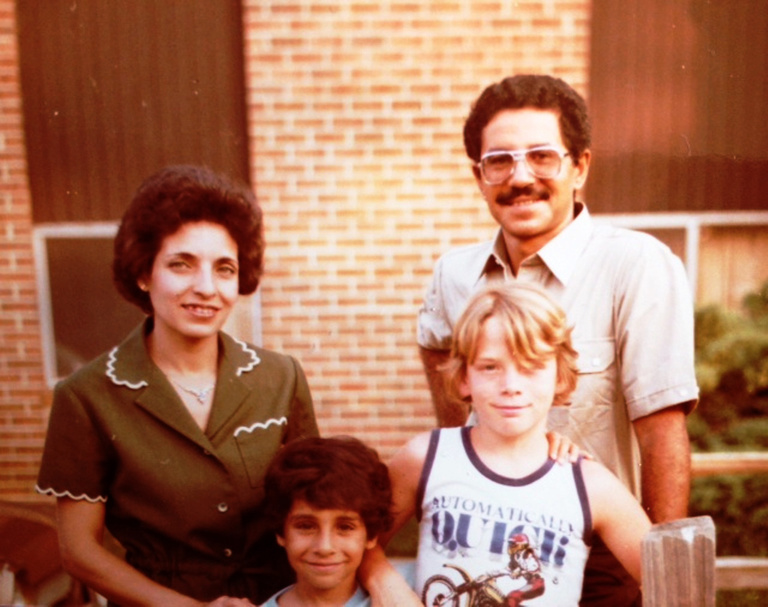
My young family (with a young neighbor) in Virginia where I worked for the World Bank after graduating from the UI.
My work in Des Moines meant a lot of commuting. As I had no course work, I would come back to Iowa City on weekends and the occasional midweek night. During the summer, such a trip was pleasant with rolling hills along I-80, and endless corn fields. But in the winter, it could be hazardous during snow or blizzard conditions – on two occasions I had to turn back. Once I spent a night in the good care of citizens of a local community who came out on snow mobiles to rescue travelers stranded in one of the highway rest areas.
The fourth year of my stay in Iowa witnessed the arrival of my first born, Amre. He and his mother enjoyed the good care at Mercy Hospital in Iowa City. I had become friendly with the Sisters/managers there.
My work at the IHA had another advantage – I was able to get approval to get financial data for 100 Iowa hospitals for my Ph.D. Dissertation. My research on the impact of insurance reimbursement systems on hospitals, under the direction of Professor Hyman Joseph, was the first applied piece of research to come out of the Iowa Health Economics Program.
We left Iowa 40 years ago. We were, in turn, happy to donate winter clothes, furniture and many books to newly arrived students.
I joined a consulting firm in Boston which had several contracts to study hospital finance for the Federal Government. The pay was good, much better than teaching jobs, but the pace was hectic. Two years later, I joined the World Bank in Washington DC where I worked as an assistant to the executive director representing the Arab group, Dr. Said El-Naggar. He taught me economics in Cairo years before, and a friend alerted him that I was in the neighborhood. This new job reintroduced me to Middle-East affairs, and rekindled my interest in development economics.
In 1981 we returned to Egypt to embark on careers in teaching, banking and public service.
Despite the many years that have passed, we still keep great memories of our life in Iowa, where the green fields reach the horizon and dreams were boundless.
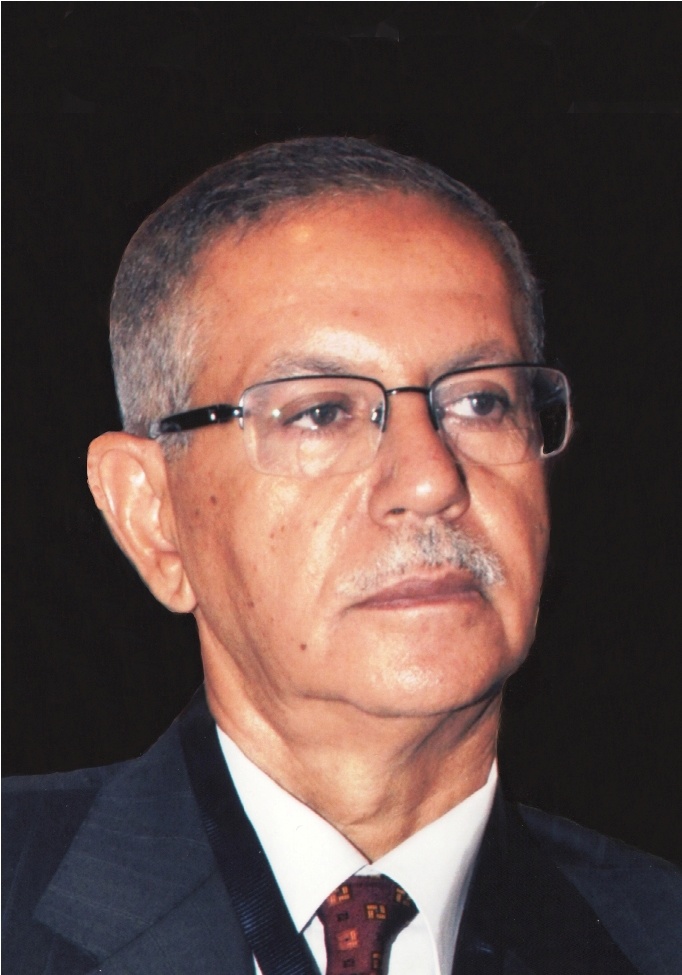
Dr. Soliman today
Ali A. Solomon, current Chairman of the United Nations' Association of International Civil Servants, received his Ph.D. in economics from the University of Iowa in 1975. Previously, he taught economics at the British University in Egypt and at various universities in Egypt and America. He was also CEO and General Manager of the Islamic Corporation for the Development of the Private Sector (ICD) – a multilateral financial institution. Dr. Soliman has served on the board of directors of a large number of banks and financial institutions in the Middle East and as economic adviser to a number of governments and private corporations that collaborated with the United Nations Development Programme and World Bank Projects.
He participates in a number of civil and cultural organizations and has published nine books and many articles in the area of economic policies and public affairs. This year marks Dr. Soliman's 45th anniversary of joining the University's Ph.D. program at the Department of Economics. He hopes that this piece will shed some light on the academic and social life at Iowa in earlier years.
Dr. Soliman and his wife and children have since returned to their home country, Egypt, to pursue full careers in teaching, banking and public service.